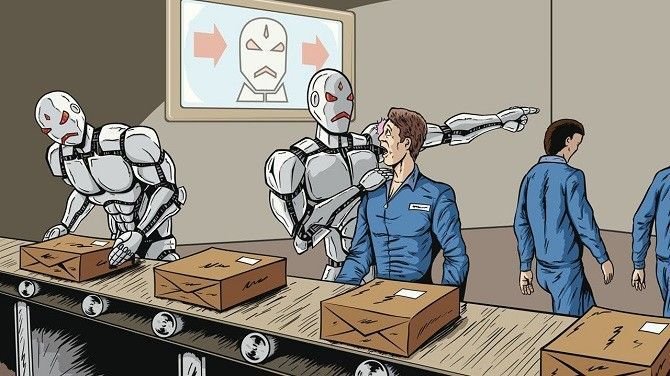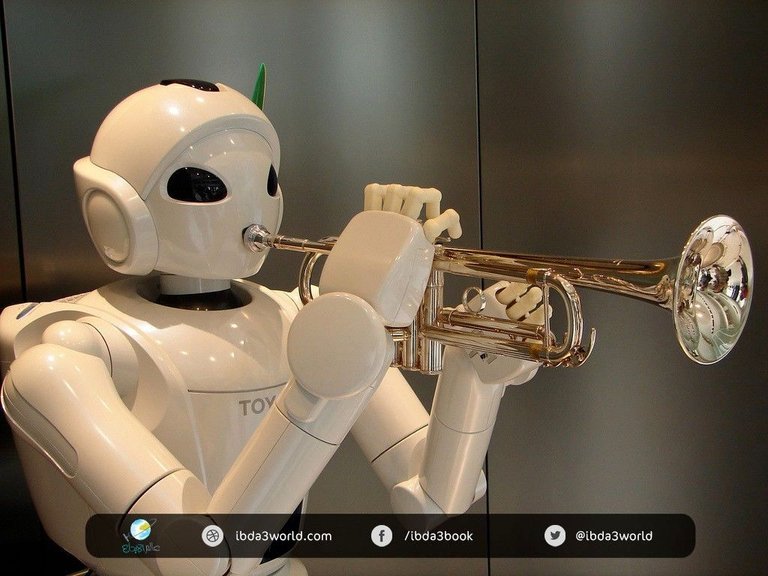
You may have read about the news that Foxconn, a Chinese giant, has been sacked for its 60,000 workers and replaced them all with robots last year 2016. Robots do not go wrong, robots do not complain. , Robots do not demand an increase in pay, and robots do not commit suicide.
We may argue for a long time that such jobs, such as assembly and assembly lines in large factories, are different from other functions that require greater interaction and human judgment to perform them effectively and correctly. But think a bit about it: what prevents a robot now with the current insufficient progress in artificial intelligence from performing functions such as teaching, photography, hygiene, police, and even medicine?

With the current level of artificial intelligence, which provides a robot with a great ability to interact and analyze questions with very high precision, equipped with advanced imaging and scanning capabilities, the robot can replace a large proportion of teachers, exam monitors, and travel companions from tour guides, With the availability of temperature monitoring sensors, heart rate, sugar level, X-ray and virtual diagnosis! The wonderful and the scary here, that we are talking about things that have already been tried and even used personally!
For example, Apple Watch is a small robot around your wrist that can measure your heart beat, blood sugar level and sweating rate and periodically report this among other things periodically every few hours during the day. The modern Tesla, which dazzles the world, actually contains a hidden leader with sophisticated artificial intelligence that controls and makes decisions instead of you and with an error ratio of zero. Dubai Police, which has already been in service for a few weeks in the United Arab Emirates, is a clear and frank example of what we are talking about here.
So, what is your chance in the near future that a robot will replace your place to perform your job of reaping the rewards of your day and achieving your self? Both Mubashar Iqbal and Dimitar Raykov believe that they have an answer to your question. This is done through a simple web site they recently designed and developed based on a research paper published by Oxford University Economics with an algorithm to predict jobs that are likely to be completed in the future.

On the site, you can type your job, such as "Teacher", and then choose the closest job description for your profession from the list that will appear to you. For example, find a Teacher Assistant or a Teacher Assistant with 56% completion opportunities and so on. You can try your job or other job with curiosity and find out what might happen in the future. Not only does the site work, it also gives you some other important data, such as the expected growth rate of that profession in the future, the average salary, the number of people working in each job starting in 2016, and whether you should be worried or not.

The mechanism of work and the results of the site look good and logical in line with the results of the paper on which it depends, but there is always a margin of error potential expectations may be obtained by the rapid development and rapid development of technology; generally this means that the margin of error may not be in your favor when it occurs. Iqbal tells us that ...
Something like that can not be accurate or true 100%, and I do not think anyone would ever think so. However, it is very useful in determining market trends and helping people to determine the direction of automation and where they are focused now and in the future
You can try it yourself by visiting the https://willrobotstakemyjob.com/ site and reading the results of your job or job that may determine the area of study you should be involved in. The completion of jobs is unavoidably inevitable, but let us hope that it will depend only on jobs ... which is an impossible and ridiculous wish, as you know